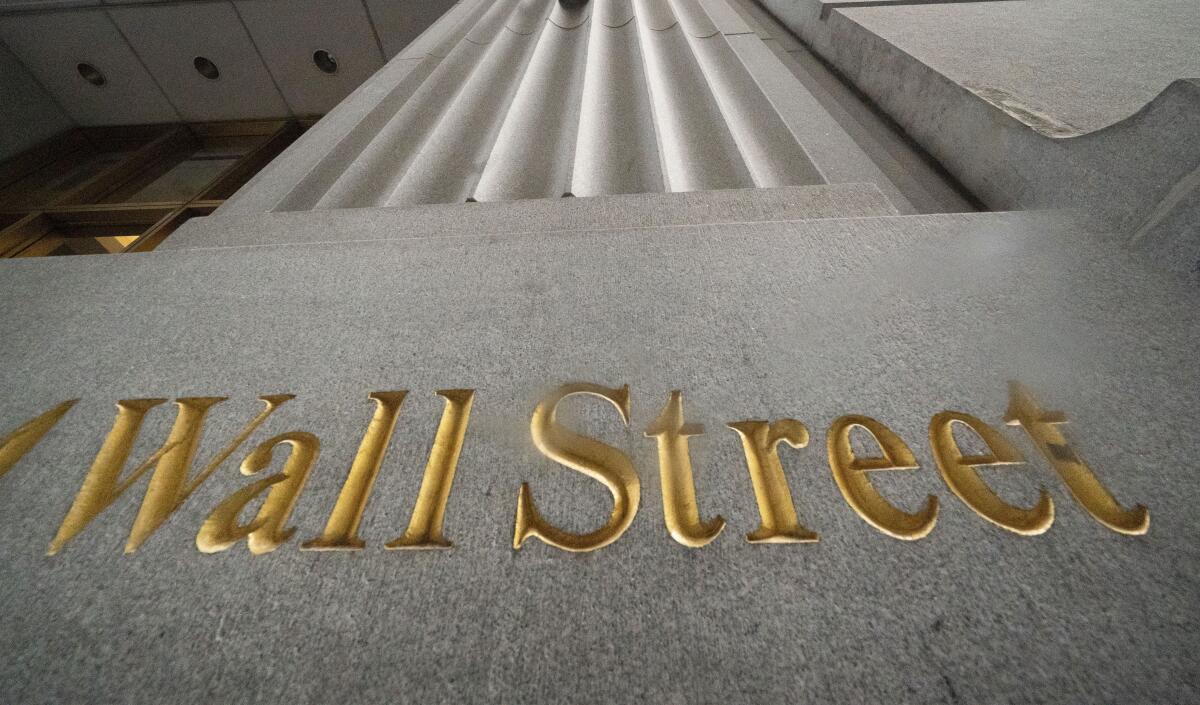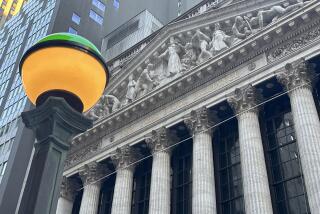Stocks climb after three days of losses, led by Big Tech

- Share via
Wall Street put the brakes on a three-day losing streak with a broad stock market rally Thursday powered by Big Tech companies and banks.
The Standard & Poor’s 500 index notched a 1.2% gain, clawing back almost half of its loss from a day earlier, when it had its biggest one-day drop since February. Even so, the benchmark index is on track for a 2.8% weekly decline, which would be its largest since January. The other major indexes were also on pace for sharp weekly declines, despite recouping some of their losses.
Technology stocks led the gainers after sinking earlier in the week as investors fretted about signs of rising inflation. Apple, Microsoft, Facebook and Google’s parent company all rose. Financial companies also did well. JPMorgan Chase, Charles Schwab and Capital One Financial each rose more than 2%.
The acceleration in prices, which has been building for months, has unsettled financial markets and raised concerns that it could weaken the economic recovery from the pandemic recession.
In a reversal from Wednesday, the energy sector was the only loser in the S&P 500 as oil prices fell sharply. It’s not uncommon for markets to reverse direction after sharp gains or losses over a period of days as investors reassess markets and pause during periods of volatility.
The S&P 500 gained 49.46 points to 4,112.50. The Dow Jones industrial average rose 433.79 points, or 1.3%, to 34,021.45. The Nasdaq composite, which is heavily weighted with technology stocks, climbed 93.31 points, or 0.7%, to 13,124.99.
Smaller company stocks, which for most of this year had outgained the broader market, also recovered some of their losses from earlier in the week. The Russell 2000 index picked up 35.81 points, or 1.7%, to 2,170.95.
Recent economic reports have left many investors uneasy. Last week’s jobs report showed fewer employers hiring than had been expected, and Thursday the government reported that wholesale prices jumped 0.6% last month, driven by higher costs for services and food. That was more than expected and the latest indication that inflation pressures are mounting.
Rising prices reflect growing economic activity after last year’s global shutdown to fight the COVID-19 pandemic. However, investors worry inflation might disrupt the recovery or prompt central banks to withdraw stimulus and near-zero interest rates.
Investors have been questioning whether rising inflation will be something transitory, as the Federal Reserve has said, or something more durable that the Fed will have to address. Currently, the central bank has maintained low interest rates in order to help the economic recovery, but concerns are growing that it will have to shift its position if inflation starts running too hot.
Bond yields rose sharply this week in response to the data but pulled back slightly Thursday. The yield on the 10-year Treasury note was 1.66%, down from 1.70% the day before.
In other markets, the price for bitcoin plunged 10% after Tesla Chief Executive Elon Musk reversed his earlier position on the digital currency and said the electric-car maker would no longer accept it as payment.
Has any era given birth to more dubious investment mechanisms than today?
The price of U.S. crude oil fell 3.4% after a key gasoline pipeline on the East Coast reopened late Wednesday. The price of crude oil is now down slightly for the week. Energy stocks fell along with oil prices. Occidental Petroleum slid 5.6% for the biggest loss in the S&P 500.
More to Read
Inside the business of entertainment
The Wide Shot brings you news, analysis and insights on everything from streaming wars to production — and what it all means for the future.
You may occasionally receive promotional content from the Los Angeles Times.












